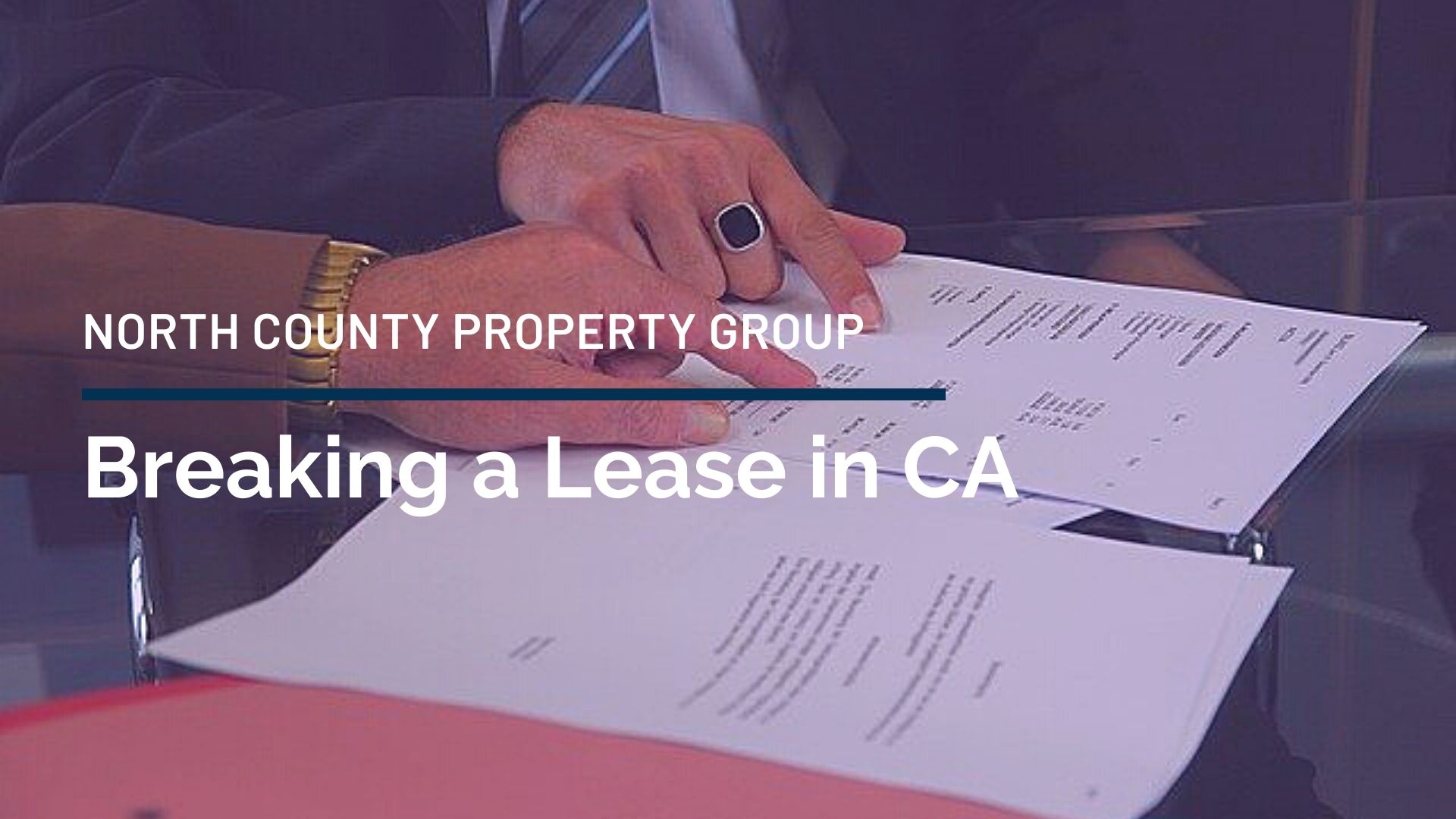Owning rental properties is generally seen as a strong investment choice. However, there are some concerns that prospective property owners have that can prevent them from entering the market.
What happens if a tenant stops paying rent and defaults on their lease agreement? The idea of something like this happening and the headaches that could ensue can deter some people from what would otherwise be a lucrative and satisfying investment.
While it's relatively rare for a tenant to break their lease or default on their rent payments, the circumstances in a tenant's life can change and put them in a difficult situation that leaves them with few options.
Breaking a lease in California creates a chain reaction, wherein a landlord's cash flow is interrupted, leading to a situation that can necessitate legal action. Let's take a look at ways to mitigate the risk of tenants breaking their leases or defaulting on payments.
What Happens When Tenants in California Break Their Leases?
One of the most common issues that can unexpectedly arise when you're a property owner with tenants is that your tenant will undergo an unforeseen change in their life that threatens their ability to make rent payments, or otherwise requires them to break a lease early. Screening prospective tenants can't account for things like unexpected job loss.

For example, a tenant could get in touch with you to say they've been offered an excellent job opportunity in another part of their country with an upcoming start date. Breaking a lease early is bound to come up in this discussion. What should you do in this circumstance?
As a landlord, you'll likely form relationships with your tenants and want them to succeed in their lives. When a positive opportunity comes their way, it's common to want to support them in reaching their goals.
When you make an effort to accommodate the needs of your tenants, they'll be more likely to treat your rental property with respect.
Breaking a Lease During COVID
The ongoing global pandemic has caused a number of legal issues for landlords and tenants alike over the past year. The lease agreement has proven to be challenging to follow in these circumstances.
For landlords, it can be difficult to conduct many tasks associated with successful rental property ownership—including rent collection, rental marketing, rental showing properties, communicating with tenants—purely in the digital realm.
Times are tough for many tenants as well. Job loss, medical troubles, and unexpected changes in family circumstances have made it difficult for many tenants in California to pay their rent on time each month, the lease term proving hard to reach and leading them to break a lease. California now includes new legislation due to the necessity for adaptable solutions over the course of this pandemic.
Rent Forbearance
One workable option for landlords in California with tenants who have suffered a loss of income due to COVID-19 and find themselves unable to pay rent is rent forbearance.

A landlord can make a contract that allows tenants to pay their rent at a later date, based on a schedule. This way, the landlord can avoid early termination of the lease, and tenants will be offered some security rather than deal with the fallout of breaking the lease in California.
It's important to remember to be sympathetic and kind with tenants who are dealing with difficult financial situations during their lease term as a result of the pandemic. At the same time, a landlord will want to carefully document the arrangement to avoid troubles down the road.
Many California tenants find themselves faced with circumstances they could not have anticipated during the lease term, and creating a workable solution based on empathy is always the best course of action. The lease agreement can be flexible, in this case.
Keep in mind that local or state legislation pertaining to rent forbearance may be in place, and must be followed. California law is not as flexible.
Early Lease Termination
Early lease termination is just what it sounds like—an offer for tenants to break their lease term early and without penalty so that they can find a rental unit that fits their new financial circumstances or other alternate living arrangements.
An early lease termination will typically include the landlord's forgiveness of the rent due, in addition to the return of the tenant's security deposit, minus the amount required to pay for any damages caused by the California tenant that require repair.
Of course, neither rent forbearance nor early lease termination are ideal circumstances and neither are required by landlords under law. After all, both go against the terms described in the lease that the tenants signed.
However, if your California tenants are currently unable to pay but will be able to make rental unit payments at a future date, rent forbearance can provide them with relief and ease the headache of tracking down missing payments.
If tenants are unlikely to be able to make rent payments in the foreseeable future, it may be best to offer a penalty-free lease termination so that both parties can move on. Breaking a lease in California can otherwise be a complicated and lengthy process.
Active Duty Tenants
According to The Soldiers' and Sailors' Civil Relief Act—a federal law—a tenant who is in the military has the right to break their lease early if they're called to active military duty in California.

In California, this is taken a step further, as renters who are active military members also have the right to break the lease if they're transferred.
Whether a tenant is an active member of the military is information a landlord should make themselves aware of during the rental unit application process and when screening prospective tenants. By being aware of which tenants could need to break the lease to serve our country, a landlord can plan for if an early termination situation emerges.
The California lease agreement can be more flexible in preparation for it, though you should not expect to, let’s say, raise the rent as a precaution. Finding a new tenant as soon as possible is the only way to mitigate this income loss due to military deployment, should it occur.
Domestic Violence and Other Specified Crimes
According to California's landlord-tenant law, if a tenant is a victim of certain crimes, breaking the lease early in order to protect their safety is in their rights. This right is also extended to those who live with victims, and family members of victims.
Victims of crimes such as domestic violence, stalking, elder abuse, assault, and more have the right to end their lease in California at any time to seek safety.
To legally break a lease in this manner, certain police documentation is required in addition to other paperwork. For a full overview of the legal circumstances that can protect tenants in this fashion, read more about the full California law here.
Eviction Protection
No landlord wants to find themselves in a situation where it becomes necessary to evict a tenant. It can seriously disrupt a landlord's financial plans and cause a large amount of stress on top of having to find a new tenant for an entire lease term. Still, you need your tenant to pay rent and you need to mitigate damages that they may have done in order to have a sustainable business.
That's why many San Diego landlords enlist the help of experienced property management companies. Some property management companies—including North County Property Group—provide eviction protection as part of their property management services.
Under an eviction protection offer, a property management company will reimburse the landlord for expenses relating to the eviction process up to a fixed amount. When you have an excellent property management team on your side, evictions are rare in the first place.
When you are protected against the cost and stress of the eviction process, you'll have more flexibility in making decisions that pertain to your property.
Disclaimer: Please keep in mind that while this article is a helpful overview of the termination of leases in California, it doesn't constitute legal advice. For specific legal advice, get in touch with a local expert in landlord-tenant law.











